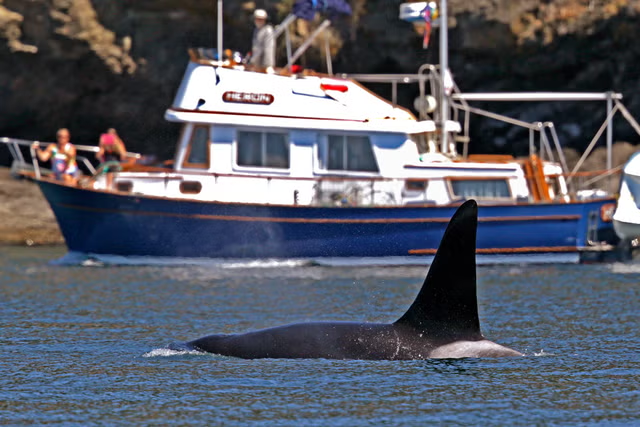This Atlantic hurricane season could be a record-breaker as it is seeing a "perfect storm" of conditions, according to forecasters.
Scientists from the National Oceanic and Atmospheric Administration (NOAA) have already predicted that this hurricane season could see between 17 to 25 named storms. And eight to 13 of these could turn into hurricanes, while four to seven could be major cyclones, NOAA reports. This means it could be a record-breaking year.
Read more: Emergency Funds: How to Build One and Where to Keep It
In a statement, forecasters said this record-breaking year is down to a "perfect storm" of La Niña conditions and extremely warm ocean temperatures. Less wind shear and less trade winds in the Atlantic will also contribute to this.
Ben Kirtman, a professor of atmospheric sciences at the University of Miami Rosenstiel School of Marine, Atmospheric, and Earth Science, said in a statement that it could be "the most active of all time."
Forecasters say there is a 70 percent chance of their predictions being accurate.
"We're seeing a shift in climate patterns in the Pacific. El Niño, which tends to increase vertical wind shear in the Atlantic and suppress some hurricane development, is ending," Kirtman said. "We're transitioning to La Niña, which does the opposite, reducing the vertical wind shear in the Atlantic and allowing for more hurricane development."
This year follows a very extreme Atlantic hurricane season in 2023. This year took fourth place for the most named storms in over 70 years.
Read more: Find the Best Type of Savings Accounts For Your Needs
"The other part of this perfect storm is that El Niño is actually having a delayed effect on Atlantic Ocean temperatures," Kirtman said. "Even though we're transitioning to La Niña conditions in the Pacific, ocean temperatures in the Atlantic are still responding to El Niño and have remained warm. And that's the ideal fuel for hurricanes."
Hurricanes are caused by warm ocean temperatures. Most begin with a tropical wave that moves through the tropics, causing thunderstorms. A combination of these warm tropical temperatures and winds can result in these intense storms.
Climate change is causing warmer global temperatures, and much of this increased heat is absorbed into the ocean, meaning the ideal conditions for hurricanes are becoming more frequent.
The active 2023 hurricane season was mostly due to "the Azores High," Brian McNoldy, a senior research associate and tropical cyclone expert at the Rosenstiel School, explained. This is a "a quasi-stationary high-pressure system over the subtropical Atlantic, being much weaker than normal."
"So, the steering currents allowed storms to turn north rather quickly," McNoldy said. "Perhaps we can thank El Niño somewhat for the lack of hurricane formation in the Caribbean Sea and Gulf of Mexico. But that probably won't hold for this year. Long-range models have consistently been showing high rainfall anomalies in the deep tropics during the peak months of the season. Although that doesn't specifically show or track hurricanes, the pattern and time of year is certainly suggestive."
While it is possible that conditions could change, the outlook for the 2024 hurricane season does not look good.
"At this point, there is a strong consensus of a rapid transition to La Niña this summer," McNoldy said. "El Niño is already decaying week by week. La Niña tends to enhance Atlantic hurricane activity, and the tropical Atlantic is far warmer than it's been in recorded history for this time of year. In fact, the ocean heat content averaged across the Main Development Region (where most tropical cyclones form) already looks like mid-August. So, if the 2024 hurricane season is to end up near average or even relatively quiet, something very major and unexpected will need to happen soon."
Do you have a tip on a science story that Newsweek should be covering? Do you have a question about hurricanes? Let us know via science@newsweek.com.
Disclaimer: The copyright of this article belongs to the original author. Reposting this article is solely for the purpose of information dissemination and does not constitute any investment advice. If there is any infringement, please contact us immediately. We will make corrections or deletions as necessary. Thank you.



